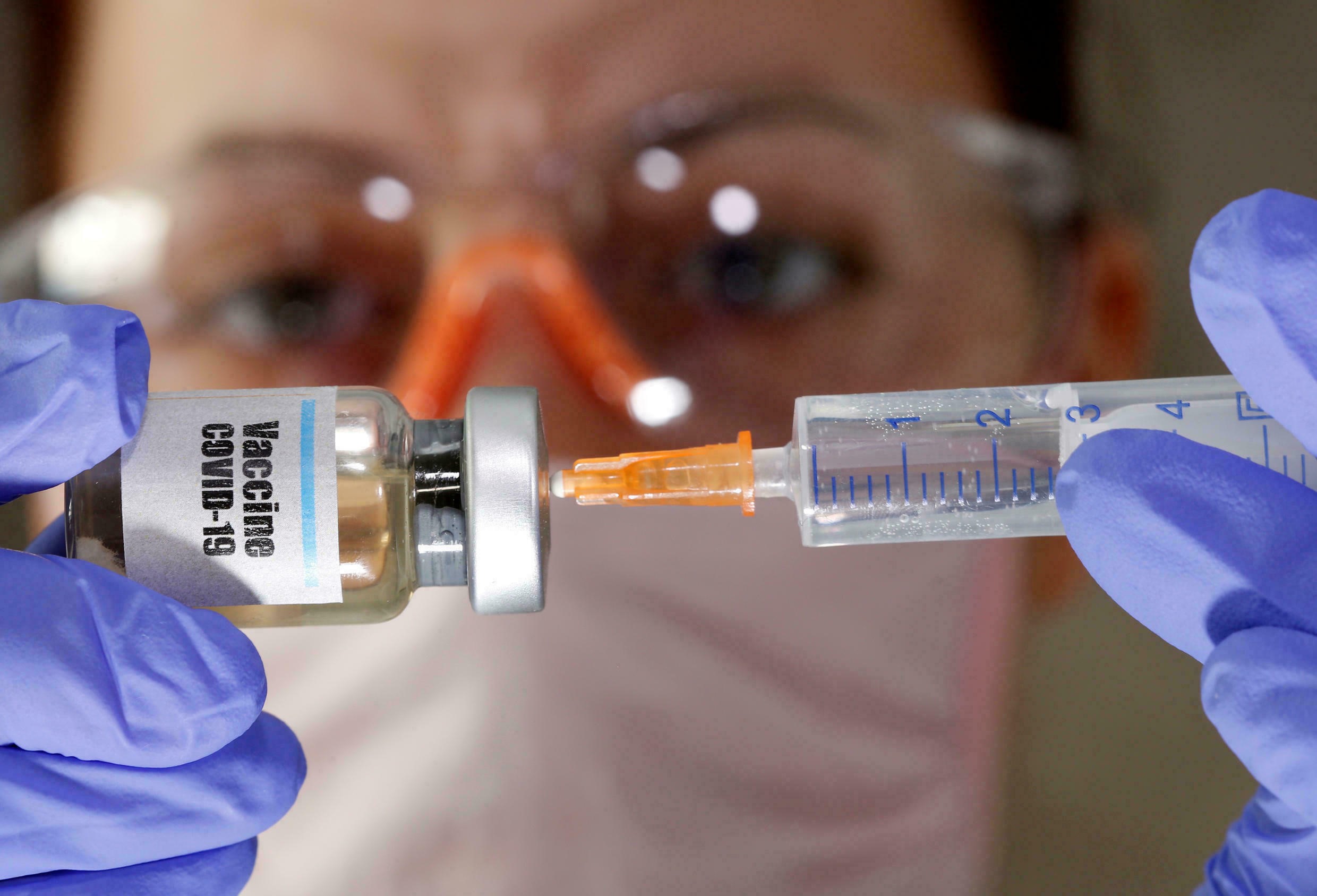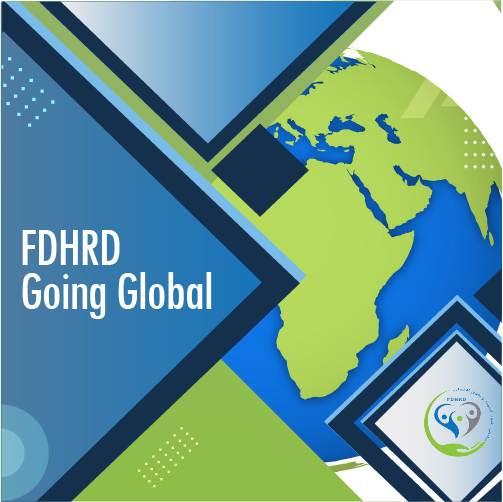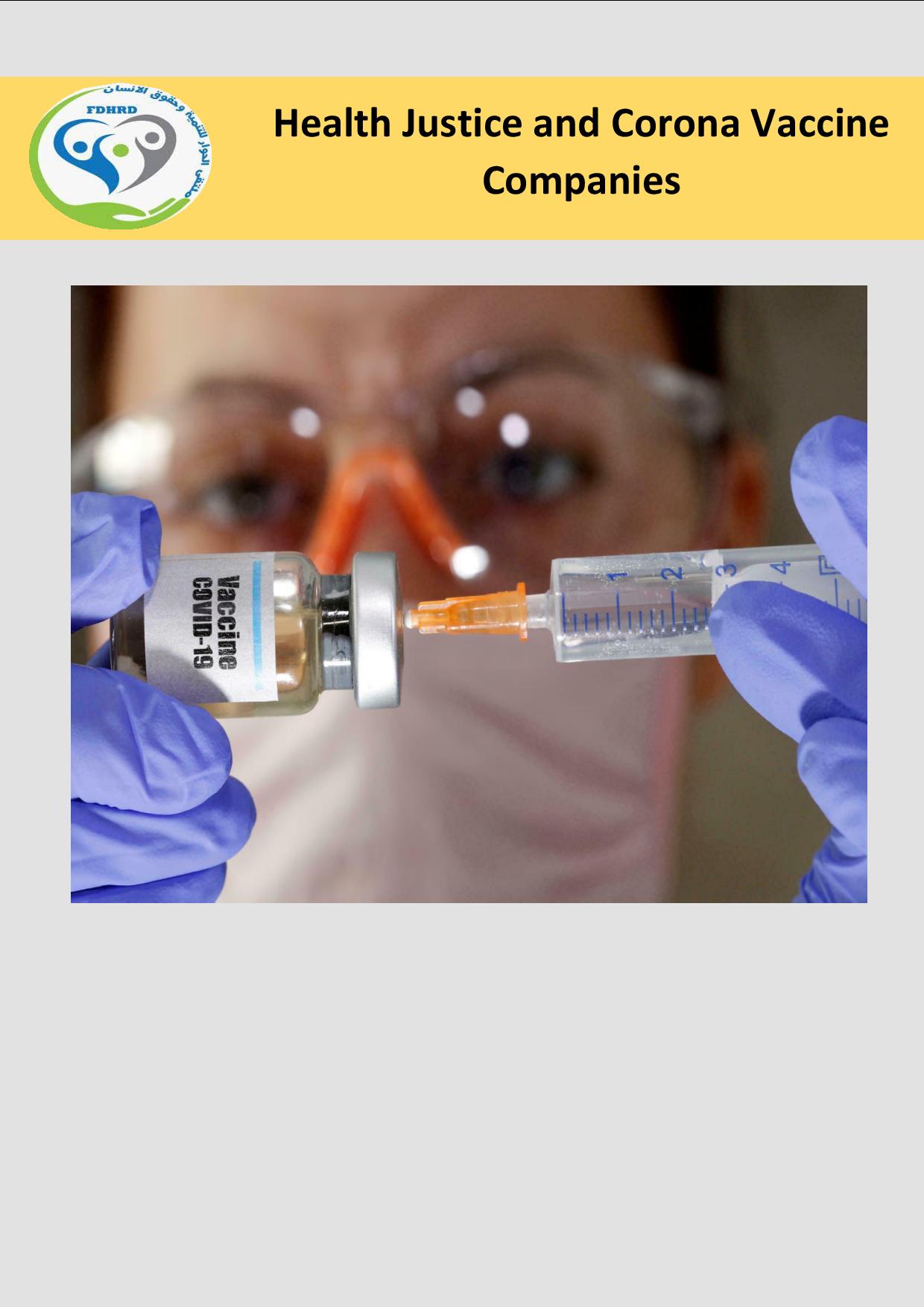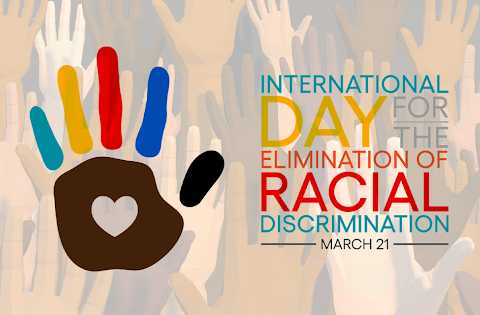press release
——————————–
Today, Wednesday, October 27, 2021, the Unit of Researches and Studies at the Forum for Development and Human Rights Dialogue (FDHRD) issued a report entitled: (Health Justice and Corona Vaccine Companies)
The report explained that one of the most important repercussions left by the Corona virus is that there have been differences in the fairness of the distribution of Corona vaccines between the peoples of developed and developing nations, despite the international efforts made to address this problem and achieve the goal of the World Health Organization to vaccinate (40%) of the population in low- and lower-middle-income countries by End of year.
The report discussed the crisis caused by multinational pharmaceutical companies in the distribution of vaccines and its impact on the right to health, which is considered a human right, through competition for profit without regard to economic conditions between countries.
The report included a number of topics, the most important of which were:
First: The right to health is a fundamental human right
The report stated that the right to health is closely related to the right to life, and since the basis is the elimination of any disease that requires treatment and care, the arrival of any vaccine related to any emerging disease, especially if it is widespread, requires its rapid distribution without discrimination.
With regard to discrimination in obtaining the vaccine, the report indicated that out of the 5.76 billion doses given around the world, a small percentage (0.3%) went to low-income countries and more than a percentage (79%) to countries with middle income – upper and high income …and AstraZeneca, BioNTech, Johnson & Johnson, Moderna, Novavax and Pfizer have refused to participate in initiatives to increase global volumes of vaccines.
Second: The race to produce the anti-Coronavirus vaccine:
The report indicated that the spread of the new Corona virus led to the competition of pharmaceutical companies to manufacture the anti-coronavirus vaccine, not only in order to limit the spread of the virus, but also in order to achieve financial profits, as the vaccine industry later turned into a commercial industry through which companies aim to achieve the largest possible financial profit.
With regard to the major companies producing the vaccine, the report stated that there are a few companies that produce vaccines and a relatively small number of vaccine buyers. For example, four companies accounted for (90%) of global vaccine revenues in 2019, but this situation is slightly different during the Corona pandemic.
With regard to the monopoly/ dominance of companies in the manufacture of vaccines, the report stated that the spread of the Corona virus and its transformation into a global pandemic led to the monopoly of vaccine distribution within the system of vaccine-manufacturing countries, especially the European Union countries, where calls and even decisions have emerged calling for preventing the exit of vaccines outside the EU countries before the internal sufficiency, and the completion of the vaccination process within the union. in opposition, few voices and limited initiatives calling for the suspension of work on intellectual property agreements related to the production of the vaccine emerged, and demanding the exchange of technology related to the manufacture of the anti-Coronavirus vaccine, which was not stopped by any human borders and spread throughout the world and caused damage different peoples.
The crisis of monopolizing the manufacture of the Corona vaccine comes due to the adherence of companies and countries that manufacture the vaccine to property rights and patents and their unwillingness to share that information with the rest of the countries or give them the right to manufacture the vaccine.
The report indicated that more than (115) countries officially support the proposal to raise intellectual property, along with leading public health advocates and NGOs.
The report stressed that the monopoly on manufacturing the Corona vaccine affects the vaccine’s access to middle-income and poor developing countries. We find that many African countries have not been able to vaccinate at least 10% of their population due to the lack of sufficient doses for those countries because the countries that manufactured the vaccination refrained from exporting it unless the process of vaccinating their citizens was completed completely.
The report stated that since the announcement of the availability of vaccines, rich countries have acquired large quantities of them (more than their basic needs), leaving poor and developing countries to face the severe scarcity and high cost of obtaining vaccines, which is known as the “vaccine nationalism” phenomenon.
According to the report, about (22.6%) of the world’s population received at least one dose of the Covid-19 vaccine, in contrast, about (0.9%) of the population of low-income countries received at least one dose.
The report also stated that about 190 countries have joined the “Co-Vax Facility”, which is a leading global framework for cooperation aimed at accelerating the development and production of COVID-19 tests, treatments and vaccines, and making them equitably available to all countries of the world.
In this context, the report emphasized that the inequity in the distribution of vaccines would lead to significant economic damage that would jeopardize the economic progress achieved over decades for all countries of the developed and developing world.
In contrast, the equitable distribution of Covid-19 vaccines leads to economic benefits of no less than (153) billion US dollars in the period 2020-2021, and about (466) billion dollars by 2025 in (10) of the major economies in the world.
Third: The impact of the monopoly on manufacturing corona vaccines on vaccination rates around the world:
With regard to the impact of the monopoly on manufacturing corona vaccines, the report indicated that the companies’ monopoly on the manufacture of vaccines and their desire not to disclose how it was manufactured or information related to that process, which requires more effort and financial and human resources, led to the vaccine becoming a commercial commodity whose prices depend on the possibility of supply and demand. As companies and countries that manufacture vaccines seek to benefit from the global pandemic and achieve various economic gains at the expense of the health of millions of people in different countries of the world.
The report indicated that more than 50 countries that failed to achieve the goal set by the World Health Organization to fully vaccinate (10%) of their population against the Corona virus by the end of last September. In Africa only (15) out of 54 countries achieved the desired goal, and half of the countries of the continent have vaccinated less than (2%) of their population, as the percentage of those who received the full vaccine reached (4.4%) only in the African continent, according to the World Health Organization.
The report concluded that the vast majority of countries are classified as poor countries and suffer from difficulties in obtaining vaccines and the structure of the health sector in them is fragile, and some of them suffer from conflicts or turmoil, such as Yemen, Syria, Iraq, Afghanistan and Myanmar, while some have suffered extensive destruction as a result of natural disasters such as Haiti. This makes the task of implementing vaccination programs very difficult.








